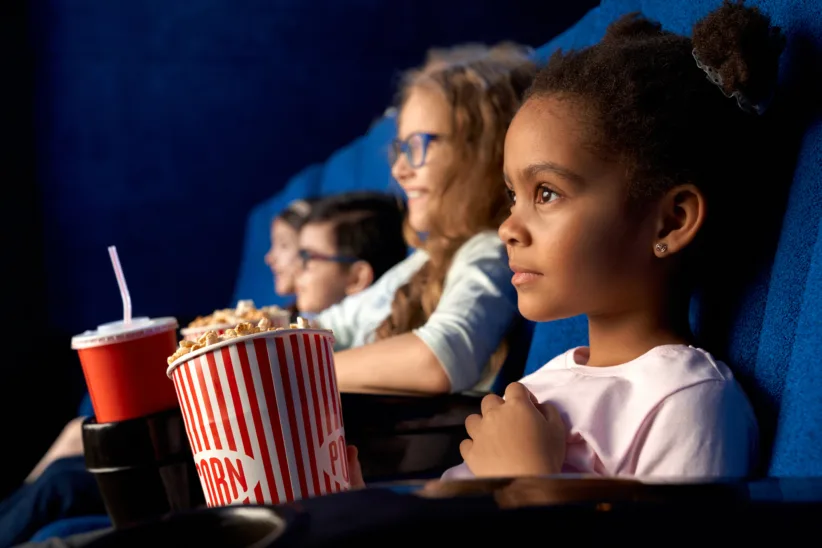Jazz at Lincoln Center has become so associated with American culture that it may be surprising to realize that it wasn’t until 1995 that the Lincoln Center Board considered the jazz program on par with New York’s Philharmonic, and its two leading opera and ballet companies. But for the co-founder of Jazz at Lincoln Center and New York City dad Wynton Marsalis, this music form has been a serious pursuit since he picked up his first trumpet at age 6.
Marsalis’ father was a musician, and his own three sons, Wynton, 17, Simeon, 15, and Jasper, 10, have all played instruments. Jamming with your dad, as the boys did frequently, is just one great perk to having a father who is a musician, renowned worldwide.
But it wasn’t all music growing up — unlike Marsalis himself, who began studying trumpet in earnest at age 12, and at age 18, moved to New York to attend Juilliard. Marsalis has had a unique approach to parenting — he says he did everything in “a festival format”. He remembers holding at-home film festivals, where they watched movies by the same director. He also explored “every section of the city” with his boys, using these tours to launch into discussions about different cultures and architecture styles, and sometimes making their excursions theme-based, like visiting the top skyscrapers in the city.
Marsalis asserts that “music is good for development of your intelligence.” Jazz at Lincoln Center education programs offer a jazz curriculum that starts kids as young as 8 months. He adds that it is very important for parents to understand that “reading music has nothing to do with playing an instrument,” noting that “you learn how to talk before you learn how to read, so you should not start off by reading music.” He says he loves to hear a band of 4-year-olds jamming, using their free expression, which he says comes before organized expression. Like the whole language approach to writing, he advocates children “getting in and playing.”
Marsalis says his approach uses “absolutely no pressure at all; it’s purely fun.” Music instruction that focuses on playing scales, he contends, is “the best way to keep kids out of music.”
He also keeps his Jazz for Young People concerts informal and inclusive, insisting that parents not keep the kids quiet. “Let them run around,” he urges. The concerts should be fun. This even extends to the workplace, where he notes that many of the women on staff were pregnant at the same time. “We like that atmosphere. We are raising a community of jazz babies,” he adds.
Marsalis believes it is incumbent upon parents to take kids to cultural events. “I tell my kids, we have to go one cultural event a weekend,” he says; these can include dance, a symphony concert, a museum. Then he has his sons look around to notice how few kids are present. His mother did the same thing when he was growing up in New Orleans, he remembers, noting that she wanted her children to have a keen understanding of culture. He adds that his mother grew up in a segregated society and she “was determined that we wouldn’t experience this.” Still, he and his five brothers were “certainly the only black kids” at the concerts and ballets his mother took them to. He acknowledges that “while you can plant the seed,” you can’t make kids attend such cultural events when they are older. But he says, for his boys, since going to museums and concerts is part of their upbringing, they now choose such activities on their own.
Marsalis has been a teacher his whole life, from helping his parents with the younger kids to volunteering as a Cub Scout leader when he was a teen. When he’s on tour, he goes into local schools and gives master classes. At concerts, he delights in parents bringing their kids along — and he gives them music lessons. “It’s a way of life, not a job,” he says.
His visionary upbringing has also impacted his own life immeasurably. He may have won eight Grammy awards based on his talent, but his achievements in music stretch far beyond that one instrument. His four-part TV series, Marsalis on Music, released on home video, and introducing young viewers to the adventure of making music, won a Peabody Award. In 1997, he became the first jazz musician to win the Pulitzer Prize in music, for his epic oratorio on the subject of slavery, Blood on the Fields.
Jazz at Lincoln Center’s WeBop! Classes are for ages 2-5. Hipsters is the new class, for 8- to 23-month-olds); Stompers is for ages 2-3; Gumbos, ages 3-5; Syncopators are ages 4-5. For more info: www.jalc.org/jazzED/index.html.





















